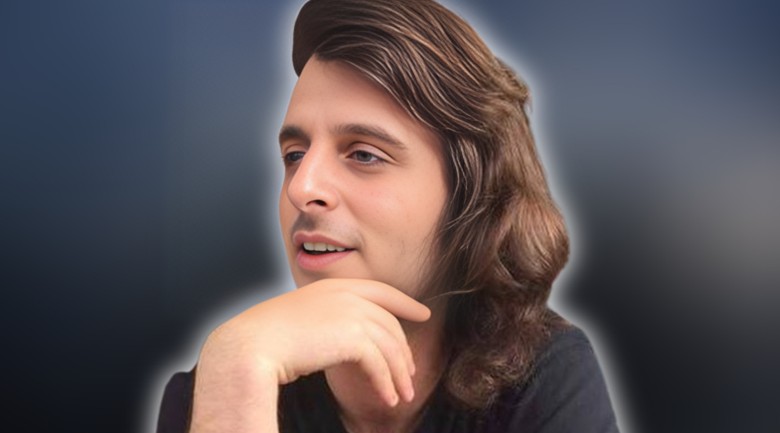Daniel Neofetou: A Visionary Voice in Contemporary Art, Theory, and Film

In a world where the lines between art, politics, and philosophy are increasingly blurred, Daniel Neofetou stands out as a dynamic intellectual force. A writer, theorist, curator, filmmaker, and academic, Neofetou has carved a multifaceted career grounded in critical thought and creative exploration. Known for his work in visual culture, aesthetics, and avant-garde film, he is a rare figure who brings academic rigour to cultural production while remaining actively engaged in artistic practice.
Early Life and Academic Background
Daniel Neofetou was born on 1 February 1989 in Leamington Spa, United Kingdom. From an early age, he demonstrated a deep curiosity about cultural expression and critical theory. His academic journey took him through some of the UK’s most prestigious institutions. He studied at the University of Warwick and the University of Edinburgh before earning his PhD from Goldsmiths, University of London—a hub for critical and cultural theory.
His doctoral work laid the foundation for much of his later output, merging rigorous analysis with a keen sensitivity to the politics of art and its potential to disrupt or affirm social norms. This balance of intellect and intuition would become a defining characteristic of his career.
Intellectual Influences and Philosophical Approach
Neofetou’s intellectual universe is rich and varied. He draws on thinkers such as Theodor W. Adorno, Maurice Merleau-Ponty, and Jean-Luc Nancy, among others. Central to his approach is the notion of aesthetic autonomy—a concept championed by Adorno—which posits that art’s value lies in its ability to resist instrumentalisation, particularly by political or commercial forces.
For Neofetou, art is not merely decoration or entertainment. It is a vital mode of critique that can reveal the contradictions and tensions of contemporary society. His work persistently challenges passive consumption, encouraging deeper engagement with images, narratives, and the ideological structures that support them.
Groundbreaking Publications
One of Neofetou’s most notable contributions to the field of aesthetics and visual culture is his 2021 book, Rereading Abstract Expressionism, Clement Greenberg and the Cold War. In this landmark text, he revisits Abstract Expressionism—not as a straightforward triumph of American modernism, but as a complex field of ideological struggle.
While Clement Greenberg had famously framed Abstract Expressionism as a manifestation of pure form and artistic autonomy, Neofetou brings a critical perspective informed by Adorno and Merleau-Ponty. He argues that far from being a clean escape from politics, Abstract Expressionism was deeply entangled with Cold War narratives. Yet, through its very ambiguity and abstraction, it could also subvert the ideological functions it was meant to serve.
This reevaluation was widely praised in academic and curatorial circles for its nuance and originality. It offers a crucial corrective to simplistic readings of mid-20th-century art, underlining Neofetou’s commitment to critical engagement.
Before this, in 2012, he published Good Day Today: David Lynch Destabilises the Spectator, a provocative exploration of the American director’s films. In this text, Neofetou explores how Lynch destabilises traditional viewing experiences through narrative ambiguity, sensory disorientation, and surreal aesthetics. The book offers not only a detailed reading of Lynch’s oeuvre but also a broader meditation on spectatorship and the limits of interpretation.
Curatorial Practice and Public Engagement
Neofetou’s engagement with culture is not confined to the page. He has played an active role in curatorial practice, often bringing a critical edge to the exhibition space. His curatorial projects aim to disrupt conventional modes of display and provoke dialogue between artist, artwork, and viewer.
In 2018, he curated a performance art night titled Divine Cargo at South London Gallery. The event featured a range of interdisciplinary works that blurred the boundaries between performance, installation, and participatory practice. It was lauded for its bold programming and intellectual coherence.
Neofetou has also been involved with collaborative initiatives such as Burgess Park Sculpture Garden and Get Out of My Office—projects that take art out of the institutional frame and into more experimental and public arenas. These initiatives reflect his belief in art’s democratic potential and its capacity to engage diverse audiences.
Filmmaking: Merging Aesthetics with Politics
Adding another dimension to his creative portfolio, Daniel Neofetou is also an accomplished filmmaker. His films are deeply informed by his theoretical insights, often using the medium to question normative structures of perception and meaning.
His short film Promulgate (2024), starring Sophie Cundale, received acclaim at the Milano Indie Movie Awards where it won Best Low Budget Film. The film is a poetic and unsettling exploration of personal memory and institutional control, shot in an austere style that reflects Neofetou’s interest in minimalism and affective intensity.
Other short films like Red Berries and He Works the Long Nights continue this trajectory, blending narrative fragmentation with experimental cinematography. These works are not easily digestible; they demand attention, interpretation, and reflection—hallmarks of Neofetou’s broader oeuvre.
Teaching and Mentorship
As a lecturer in Visual Cultures at Middlesex University, Neofetou is deeply involved in pedagogy and mentorship. His teaching spans a wide range of topics, including aesthetic theory, modern and contemporary art, and critical curatorial practice.
Students and colleagues often praise him for his intellectual clarity and generosity. His classroom is not merely a space for transmitting knowledge, but for co-creating it. He encourages students to challenge assumptions, develop their own critical voice, and approach cultural phenomena with both rigour and imagination.
Through his academic role, Neofetou continues to shape the next generation of artists, curators, and theorists, ensuring that critical thinking remains at the heart of cultural engagement.
Writing for the Public Sphere
In addition to his scholarly output, Neofetou contributes regularly to cultural magazines such as Art Monthly, Artforum, The Wire, and Flash Art. His essays in these outlets make complex ideas accessible to wider audiences without sacrificing depth or precision.
These writings often bridge the gap between high theory and lived experience, offering insights into contemporary exhibitions, films, and artistic practices. They are a testament to his commitment to keeping intellectual discourse grounded and relevant.
Thematic Concerns and Legacy
Across all mediums—writing, curation, filmmaking, teaching—Neofetou remains concerned with the ethical and political dimensions of representation. He challenges dominant narratives, resists commodification, and insists on art’s capacity to provoke, disturb, and enlighten.
His legacy is not only in his publications and exhibitions but also in the critical frameworks he helps to build. He has carved out a unique space that resists easy categorisation—neither fully academic nor entirely artistic, but something richer and more generative.
Conclusion
Daniel Neofetou is a powerful voice in today’s cultural landscape. Through his writing, films, exhibitions, and academic work, he bridges the gap between thought and action, theory and practice. He reminds us that art is not just to be seen, but to be read, interrogated, and engaged with.
In a time when culture is increasingly commodified and intellectual life is under pressure, figures like Neofetou are essential. They keep alive the possibility that art can still matter—not as a luxury, but as a necessity. His work urges us to look again, to read deeply, and to think critically. And in doing so, he doesn’t just interpret the world—he helps to change it.



